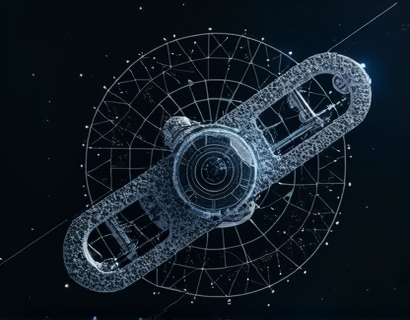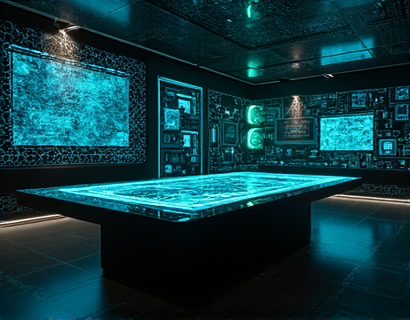Unlocking Ancient Wisdom: A Modern Guide to Historical Insights and Cultural Heritage
In an era where the pace of life often overshadows the richness of our past, there exists a profound opportunity to reconnect with the ancient wisdom and cultural heritage that have shaped our world. This guide aims to bridge the gap between historical insights and modern understanding, offering a comprehensive exploration for history enthusiasts and cultural explorers. By delving into the depths of our shared history, we can gain a deeper appreciation of the present and a clearer vision for the future.
The journey into ancient wisdom begins with an acknowledgment of the vast and diverse tapestry of human history. From the monumental structures of ancient civilizations to the intricate philosophies and spiritual practices, each era has left an indelible mark on the world we inhabit today. This guide will navigate through key periods and cultures, highlighting the timeless teachings and insights that remain relevant in the modern context.
Understanding Ancient Civilizations
Ancient civilizations such as the Egyptians, Mesopotamians, Greeks, and Romans laid the foundations of modern society. Their achievements in architecture, governance, and philosophy continue to influence contemporary thought and practice. For instance, the Egyptian pyramids, with their precise engineering and astronomical alignments, demonstrate an advanced understanding of mathematics and astronomy. These structures are not just historical landmarks but also symbols of human ingenuity and perseverance.
The Mesopotamians, often referred to as the cradle of civilization, developed the first known written language, cuneiform. This innovation enabled the recording of laws, literature, and historical events, paving the way for the development of complex societies. The Code of Hammurabi, one of the earliest sets of laws, provides insights into the social and legal structures of ancient Babylon. Understanding these early legal systems helps us appreciate the evolution of modern law and governance.
Philosophical and Spiritual Insights
Ancient wisdom is not limited to tangible achievements; it also encompasses profound philosophical and spiritual insights. Greek philosophers like Socrates, Plato, and Aristotle explored fundamental questions about existence, ethics, and knowledge. Their dialogues and treatises continue to influence Western philosophy and thought. For example, Socrates' method of questioning, known as the Socratic method, is still used in educational and legal contexts to encourage critical thinking and dialogue.
Eastern philosophies, such as Buddhism and Taoism, offer different perspectives on the nature of reality and the path to enlightenment. The teachings of the Buddha, with their emphasis on mindfulness, compassion, and the impermanence of all things, provide a framework for personal and social well-being that remains highly relevant today. Similarly, Taoist principles of harmony with nature and balance in life offer valuable lessons for modern sustainability and holistic living.
Art and Culture
The artistic and cultural expressions of ancient civilizations are a testament to their creativity and innovation. From the intricate pottery of the Minoans to the majestic sculptures of the Greeks, these works of art reflect the values, beliefs, and aesthetics of their time. The Parthenon in Athens, with its perfect proportions and detailed friezes, stands as a pinnacle of classical architecture and art. Visiting such sites or studying their images can provide a profound sense of connection to the past and inspire contemporary artistic endeavors.
Music and dance were also integral parts of ancient cultures. The lyres and flutes of ancient Greece, the rhythmic dances of the Egyptians, and the ceremonial dances of indigenous cultures all offer insights into the ways people expressed themselves and connected with their communities. These artistic traditions continue to influence modern music, dance, and performance arts, demonstrating the enduring power of cultural expression.
Preserving and Interpreting Ancient Knowledge
Preserving and interpreting ancient knowledge is a complex but crucial task. Archaeologists, historians, and cultural scholars employ various methods to uncover and understand the remnants of past civilizations. Excavations, textual analysis, and interdisciplinary research are essential tools in this endeavor. For example, the decipherment of the Rosetta Stone was a pivotal moment in Egyptology, allowing scholars to read and interpret ancient Egyptian texts. Such breakthroughs have opened doors to a deeper understanding of ancient societies and their contributions to human knowledge.
Digital technology has revolutionized the way we access and study ancient artifacts and texts. High-resolution imaging, 3D modeling, and virtual reality are enabling researchers and the public to explore historical sites and objects in unprecedented detail. Online databases and digital archives make it possible for anyone with an internet connection to delve into the rich history of human civilization. These resources democratize access to ancient wisdom, fostering a global appreciation and understanding of our shared heritage.
Applying Ancient Wisdom to Modern Life
The true value of ancient wisdom lies in its applicability to contemporary issues. Many ancient teachings offer timeless solutions to modern challenges. For instance, the Stoic philosophy of living in accordance with nature and accepting what we cannot change can help individuals navigate the stresses of modern life. Mindfulness practices rooted in Buddhist tradition promote mental well-being and resilience, which are increasingly recognized in modern psychology and wellness programs.
Sustainability is another area where ancient wisdom can guide modern practices. Indigenous cultures around the world have developed sustainable ways of living in harmony with their environments. Their knowledge of local ecosystems, resource management, and traditional agricultural practices can inform contemporary efforts to create more sustainable and resilient communities. By learning from these time-tested methods, we can develop more effective strategies for addressing environmental challenges.
Cultural Heritage and Identity
Cultural heritage plays a vital role in shaping individual and collective identities. Preserving and celebrating the diverse heritages of different cultures is essential for fostering mutual respect and understanding. Cultural festivals, traditional crafts, and oral histories are all important ways in which communities maintain their unique identities and pass them on to future generations. These practices not only enrich our lives but also contribute to a more inclusive and harmonious society.
Education systems can incorporate more content on cultural heritage and ancient wisdom to foster a deeper appreciation among younger generations. By integrating these topics into curricula, we can inspire a new generation of history enthusiasts and cultural explorers. Museums, historical sites, and cultural centers also play a crucial role in educating the public and preserving physical and intangible heritage.
Conclusion
Unlocking ancient wisdom and cultural heritage is a journey that enriches our understanding of the world and our place in it. By exploring the achievements, philosophies, and artistic expressions of past civilizations, we gain valuable insights that can inform and inspire our modern lives. This guide has highlighted the importance of preserving and interpreting ancient knowledge, applying its lessons to contemporary issues, and celebrating cultural diversity. As we continue to navigate the complexities of the 21st century, the wisdom of the past remains a powerful resource for building a better future.










































